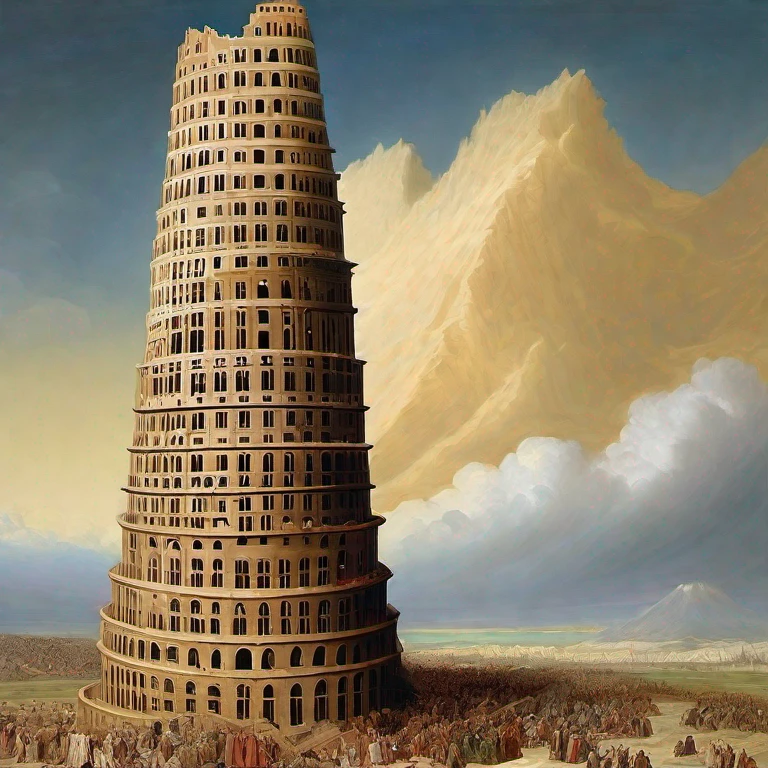In the heart of ancient Mesopotamia, a fascinating tale emerges from the pages of the Bible. The Tower of Babel, a story embedded with moral lessons and theological significance, captures the essence of human ambition and the consequences it may bring. This reflective article delves into the biblical narrative of the tower, presents key passages that shed light on its meaning, and concludes with a contemplation of what our world might resemble if the tower had indeed been constructed.
The Story of the Tower of Babel
The story of the Tower of Babel unfolds in the Book of Genesis, Chapter 11. It begins with a united humanity speaking a common language and sharing a common purpose – to build a tower that reaches the heavens. The people’s intentions were twofold: to make a name for themselves and to prevent dispersal throughout the Earth. They believed that this colossal structure would be a symbol of their power and unity.
Divine Intervention
However, God, observing the city and the tower, recognized the danger of such an endeavor. He knew that if humanity remained unified with a common language and purpose, there would be no limit to what they could achieve. Understanding the destructive potential arising from their ambition, God decided to intervene.
“And the Lord said, ‘Behold, they are one people, and they all have the same language. And this is what they began to do, and now nothing which they plan to do will be impossible for them” (Genesis 11:6).
To disrupt their collective efforts, God confused their language, causing communication barriers to arise among the builders. This resulted in the scattering of people across the Earth, giving birth to different languages, cultures, and nations.
Reflection and Lessons
The Tower of Babel narrative provokes deep reflection on the nature of human ambition and Divine intervention. It warns against excessive pride and self-aggrandizement, emphasizing the importance of humility and recognizing the limitations of human power.
Pride and the desire for fame can blind us, leading to the neglect of our fundamental values and virtues. The story highlights the inherent human need for unity and communication, as well as the consequences of misusing these gifts.
The World If the Tower of Babel Was Built
Imagining a world where the Tower of Babel had been constructed beckons a thought-provoking scenario. At face value, a united humanity speaking a common language may possess significant advantages. Free flow of ideas, cultural exchange, and universal understanding could potentially foster harmony and progress.
However, considering the biblical context, we must acknowledge the potential dangers inherent in such a scenario. Unchecked ambitions and relentless pursuit of power could lead to exploitation, domination, and the suppression of diversity. The absence of different languages and cultures might stifle creativity and limit the richness of human experience.
Ultimately, the story of the Tower of Babel teaches us the importance of striking a balance between unity and diversity, ambition and humility. It serves as a reminder of the Divine order that exists beyond our human aspirations, urging us to recognize the benevolent guidance of a higher power.
The Significance of Our Limitations
The Tower of Babel narrative carries enduring relevance and wisdom. It reminds us of the consequences of unchecked ambition and overreaching pride. The scattering of people across the Earth due to the confusion of language symbolizes the diversity inherent in humanity, reminding us to value and embrace our differences.
While the construction of the Tower of Babel may have presented a formidable feat of human engineering, the story ultimately emphasizes the significance of our limitations. It inspires us to strive for unity in diversity, fostering a world where different languages, cultures, and perspectives coexist harmoniously.
May we reflect on the lessons of the Tower of Babel, cultivating humility, respect, and understanding as we navigate the complexities of our diverse global society.
